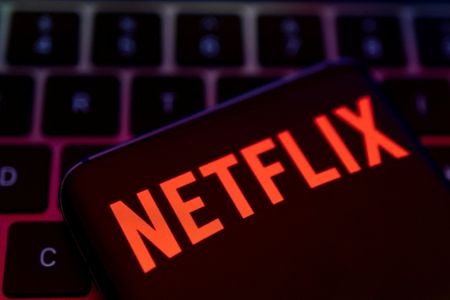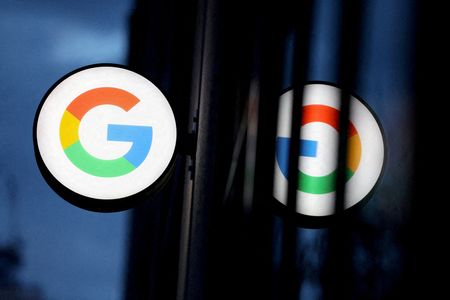By Joyce Lee
SEOUL (Reuters) – South Korea’s parliament saw heated debate on Friday over proposed legislation to make global content providers such as Netflix and Alphabet’s Google pay South Korean network fees.
The deliberations mirror attempts in Europe by some countries that want the European Commission to come up with legislation that ensures Big Tech firms partly finance telecoms infrastructure, as video streaming and other data usage surges.
Various versions of legislation have been proposed in South Korea in the hope of making the companies pay what supporters of the reform call a fair price.
The hearing is expected to be concluded late on Friday but the proposal is still seen as some way away from moving forward to the next stage of the legislative process.
“Google and Netflix account for more than a third of domestic traffic … It befits global companies to review the issue more proactively,” lawmaker Hong Suk-joon said during the hearing.
Others disagreed, saying imposing fees on the big tech companies could mean they could raise their own fees and undermine South Korean content creators.
“It risks the collapse of domestic content providers while trying to protect a small number of domestic internet service providers,” said Jung Chung-rae, head of the parliament committee overseeing the issue.
Google’s YouTube has campaigned against the bill and more than 259,824 people have signed a petition opposing the legislation, according to activist group Opennet.
“It will be necessary to deeply review the way the business is run,” Google South Korea’s country director Kyoung Hoon Kim told lawmakers, referring to what would happen if such legislation was introduced.
Liz Chung, a director at Netflix’s South Korean unit, said her company was looking for ways to handle surging traffic.
“We are developing a number of technical measures to efficiently utilise networks and respond appropriately to traffic growth,” Chung said.
In Europe, a regulators’ plan to make Google, Meta and Netflix bear some telecoms network costs has been welcomed by big telecoms operators, but smaller ones warned it would distort the telecoms market and harm competition.
It costs money to establish and maintain subsea cables and infrastructure that bring data from one place to another and the exploding popularity of global video content has raised the costs of bringing data stored overseas, experts said.
YouTube has 41.8 million active South Korean users, out of a population of 51.6 million. They used YouTube for a combined 1.38 billion hours in September, according to data provider Mobile Index.
Global mobile data traffic reached 67 exabytes per month by the end of 2021, projected to reach 282 exabytes in 2027, Sweden’s Ericsson said in a June report. Video traffic accounts for about 69% of the traffic, and is expected to rise to 79% in 2027.
South Korean network provider SK Broadband has gone to court in the hope of making Big Tech pay fees.
SK declined to comment.
“(Legislation) could have repercussions including content providers passing on costs to end-users,” said Kim Hyun-kyung, professor at Seoul National University of Science and Technology.
(Reporting by Joyce Lee; Editing by Robert Birsel)


